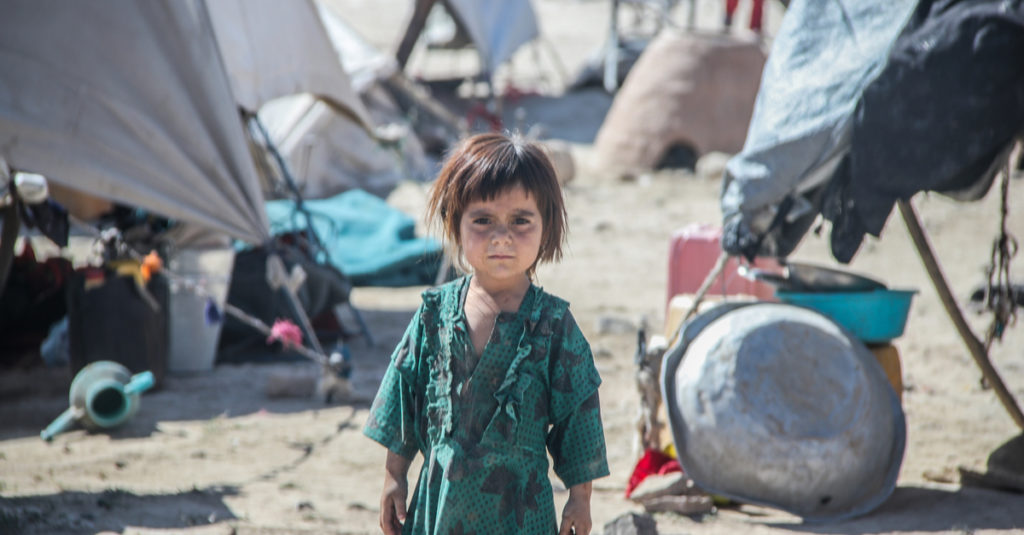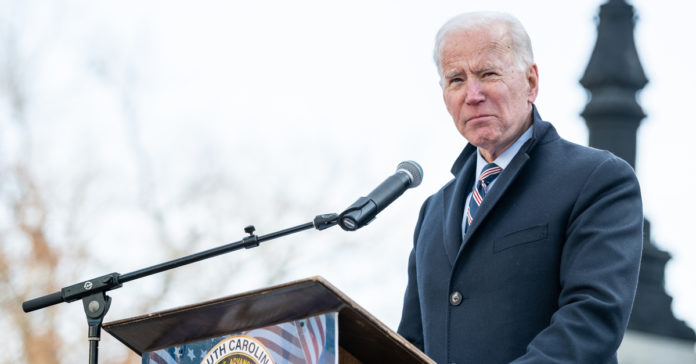President Biden has effectively confiscated $7 billion belonging to Afghanistan’s Central Bank – partially to compensate American victims of 9/11.
The decision is already being condemned by Afghan lobby groups who say it will worsen a catastrophe in progress, affecting millions of Afghans, many of whom are on the verge of starvation.
In an Executive Order signed yesterday, Biden said “the preservation of certain property of Da Afghanistan Bank (DAB) held in the United States by United States financial institutions is of the utmost importance to addressing this national emergency and the welfare of the people of Afghanistan.”
He added: “In order to address this national emergency, the Executive Order blocks all property and interests in property of DAB that are held in the United States by any United States financial institution, including the Federal Reserve Bank of New York, and compels the transfer of the blocked property into a consolidated account held at the Federal Reserve Bank of New York.”
Later, the White House clarified that $3.5 billion would be set aside to potentially compensate victims of 9/11, which was plotted by al Qaida in Afghanistan.
“Many U.S. victims of terrorism, including relatives of victims who died in the September 11, 2001 terrorist attacks, have brought claims against the Taliban and are pursuing DAB assets in federal court. Because some of these plaintiffs currently have writs of execution against the DAB assets, the court will need to issue a further decision regarding the scope of those writs.
“Even if funds are transferred for the benefit of the Afghan people, more than $3.5 billion in DAB assets would remain in the United States and are subject to ongoing litigation by U.S. victims of terrorism. Plaintiffs will have a full opportunity to have their claims heard in court.”
Subscribe to our newsletter and stay updated on the latest news and updates from around the Muslim world!
The White House added that the administration will seek to facilitate access to $3.5 billion for the benefit of the Afghan people and for Afghanistan’s future.
“The E.O. (Executive Order) is designed to provide a path for the funds to reach the people of Afghanistan, while keeping them out of the hands of the Taliban and malicious actors. The United States has sanctions in place against the Taliban and the Haqqani network, including for activities that threaten the safety of Americans such as holding our citizens hostage.

“While this E.O. will help preserve a substantial portion of Afghanistan’s reserves to benefit the Afghan people, we understand there are no easy solutions for Afghanistan’s economic challenges, which have been exacerbated by the Taliban’s forced takeover of the country: Even prior to the events of last August, Afghanistan’s economy was on the brink.
“Afghanistan faced poverty rates above 50 percent. International donor grants financed about 75 percent of public expenditures and 50 percent of the government’s budget. A two-year long drought had reduced many crops to 40 percent of their usual yields, and Afghanistan had one of the least developed financial systems in the world — with just 10-20% of adults holding bank accounts. Rampant corruption crippled sectors that should have been profitable.
“The Taliban’s forced takeover made the already frail economic situation worse. The IMF estimates that Afghanistan faces an economic contraction of 30%, and many of the senior officials and technical experts needed to provide sound economic management have fled the country as a result of the Taliban’s actions.
“These problems reflect longstanding, structural issues that predated the events of August 2021 and have worsened due to uncertainty and perceived risk surrounding the Taliban’s capacity to run the economy. This includes its ability to implement anti-money laundering measures and measures to counter the financing of terrorism.
“Against this challenging backdrop, the United States will continue to work tirelessly with the international community to ensure that humanitarian assistance and other support flows to the people of Afghanistan.”
But Afghans For A Better Tomorrow, a group of Afghan-American organisers, called Biden’s decision “cruel and short-sighted.”
They said: “Let us be clear: all of the $7.1 billion in reserves belongs, rightfully, to the people of Afghanistan and ought to be used to allow the Central Bank of Afghanistan (or Da Afghanistan Bank, DAB) to perform its basic functions. One way to alleviate the unspeakable suffering that is occuring in every corner of Afghanistan is to gradually and partially unfreeze the assets immediately, allowing the DAB to restore liquidity into the Afghan economy. This would be overseen by an independent auditor and ensure no money falls into Taliban hands.
“We also urge the families of victims of the 9/11 attack who are pursuing litigation to engage with the Afghan-American community. We urge them to reconsider and drop their suit. Barry Amundson, who lost a brother in the Pentagon on that tragic day, said he fears ‘that the end result of seizing this money will be to cause further harm to innocent Afghans who have already suffered greatly.’
“We wholeheartedly agree. As Afghans, we are no strangers to immense suffering and pain. For forty years, our friends and family too, have been the victims of senseless violence. Taking money which rightfully belongs to the Afghan people will not bring justice but ensure more misery and death in Afghanistan.”




















